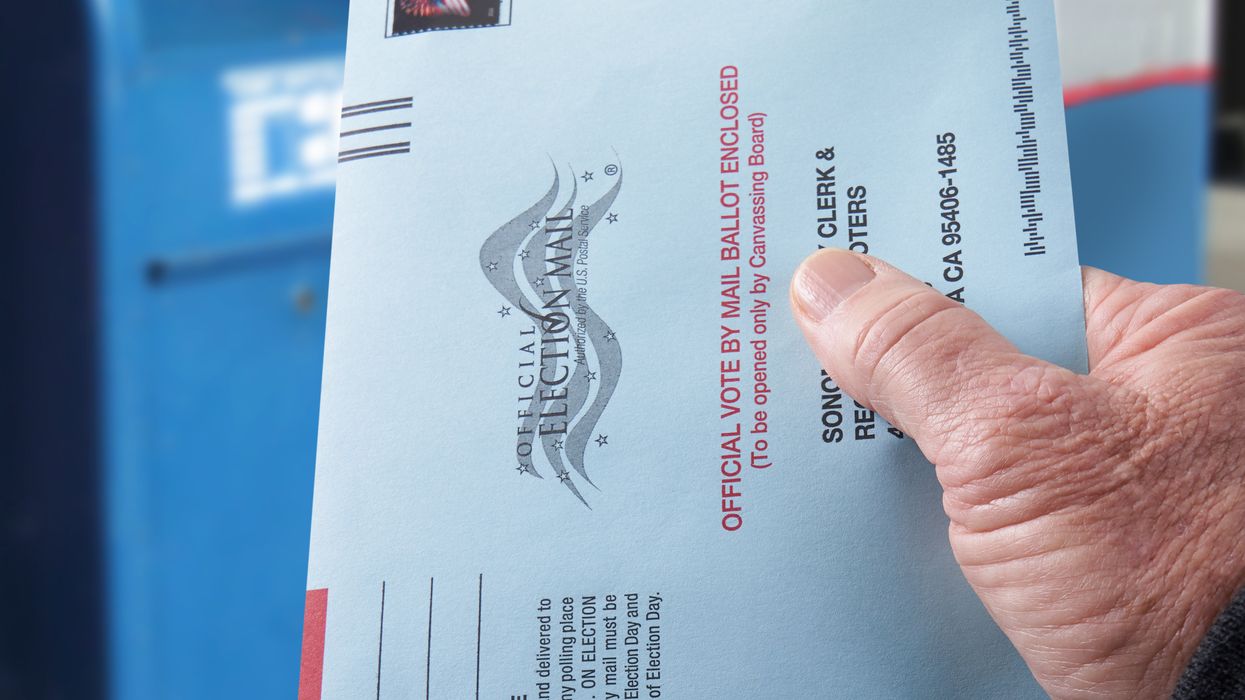Requiring Georgia voters to provide their own stamps for mail-in ballots and ballot applications does not count as an unconstitutional poll tax, a federal judge ruled.
The decision is a setback for one of the most ambitious causes of voting rights advocates, who have filed dozens of lawsuits seeking to ease the rules of absentee voting in order to promote turnout for the pandemic-complicated November election.
But within hours of Tuesday's ruling, lawyers filed two fresh suits — in New Hampshire, which like Georgia is a presidential battleground this fall, and Mississippi, a deeply red state widely identified as the toughest place in the country to cast a ballot this year.
These are the details of the cases in the three states:
Georgia
The suit argued that the state's requirement that voters pay their own postage — which is also the law in 32 other states — effectively imposes a poll tax and is also an unjustifiable burden on the right to vote.
Judge Amy Totenberg of Atlanta kept alive the portion of the litigation questioning whether making voters pay postage imperils their voting rights. In declaring that "stamps are not poll taxes," however, she said that was because voters can cast ballots in person at no cost, so paying 55 cents for getting an absentee ballot and 55 cents more to return it is not unconstitutional.
The judge's ruling was not altogether a surprise. She had already declined to order the state to provide postage-paid envelopes for the June primary and Tuesday's runoffs — but had held off on a decision about the general election while pondering fresh arguments from both sides
The case was filed in April by the American Civil Liberties Union on behalf of a group seeking to empower communities of color, the Black Votes Matter Fund. They argued that in-person voting is not a viable option during the pandemic and nearly impossible for some elderly and disabled voters.
The judge's ruling noted the bevvy of other lawsuits challenging the state's election rules and described her decision as "certainly not likely the final word on absentee balloting issues or the implementation of the absentee ballot process in Georgia."
Mississippi
The ACLU and the progressive Mississippi Center for Justice sued in state court to make absentee voting available to all during the coronavirus pandemic. After a wave of easements around the country, the state is one of just eight where a particular excuse beyond the fear of Covid-19 will be required to get a vote-by-mail ballot.
The law was changed this summer, however, to add "temporary physical disability" as one of the acceptable reasons along with being under a doctor-ordered quarantine or caring for someone quarantined.
The suit wants a judge to declare that all voters, not just those under doctor's orders, can cite the need to stay away from public places during the pandemic as reason enough to obtain an absentee ballot.
The suit says GOP Secretary of State Michael Watson's plan, which is to allow each local election administrator to decide how permissive the new law has made things, will sow confusion and establishes unfairly different rules.
New Hampshire
The lawsuit is the latest brought by Marc Elias, the attorney who has been running the Democrats' wide-ranging and aggressive effort to get the courts to make voting easier. He has now filed lawsuits in 19 states, this time on behalf of the American Federation of Teachers.
The state sent the mail-in ballots for November to all municipalities this week, and anyone can get one because New Hampshire is one of the places that has decided coronavirus precautions are an acceptable reason this year.
But there are plenty of other problems, the lawsuit says, echoing the complaints in most of the other Democratic lawsuits across the country. It challenges as illegally burdensome the process of registering to vote absentee, the postage charged to send in an absentee ballot, the requirement that absentee ballots arrive at election offices by Election Day, and the ban on people and groups collecting and delivering absentee ballots.
Randy Weingarten, president of the teachers' group, said the AFT is "taking this on as defenders of our democracy and to ensure everyone who is eligible to vote can do so in a fair and safe way in November."




















Marco Rubio is the only adult left in the room